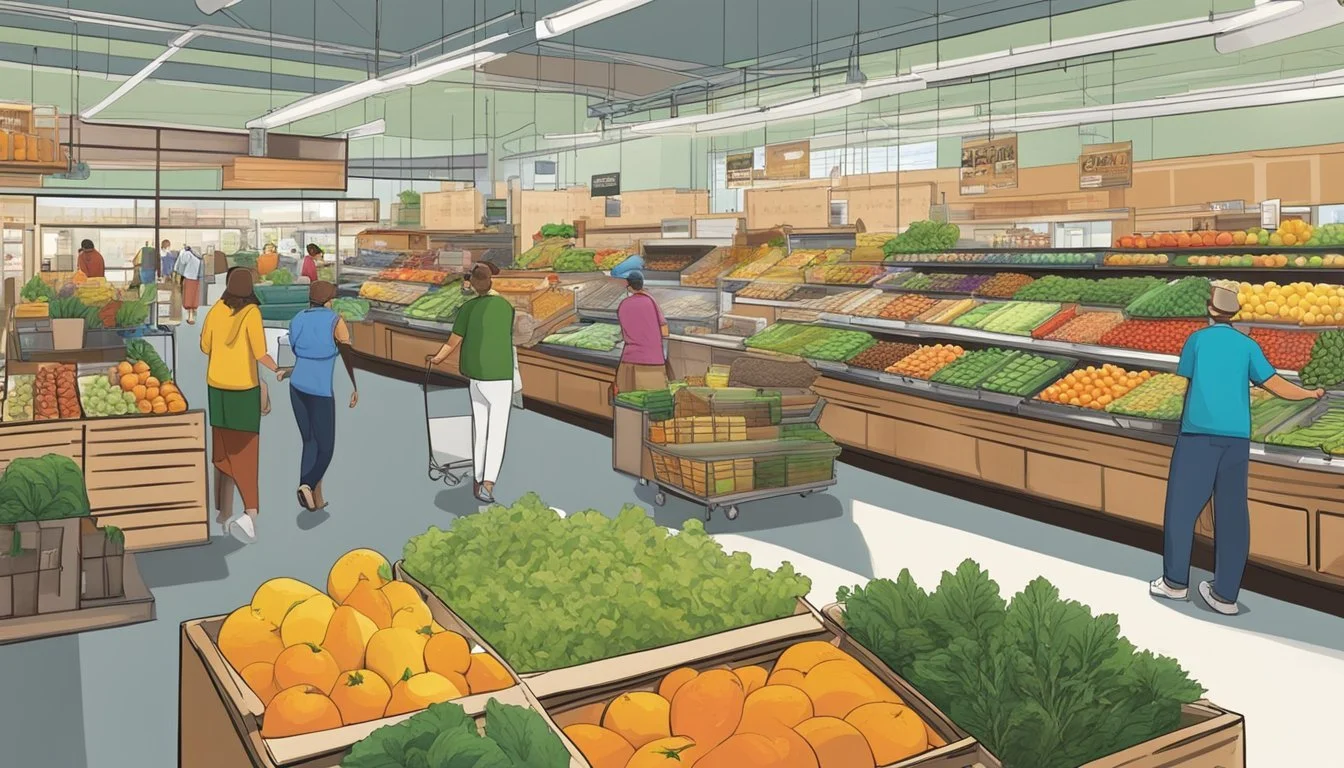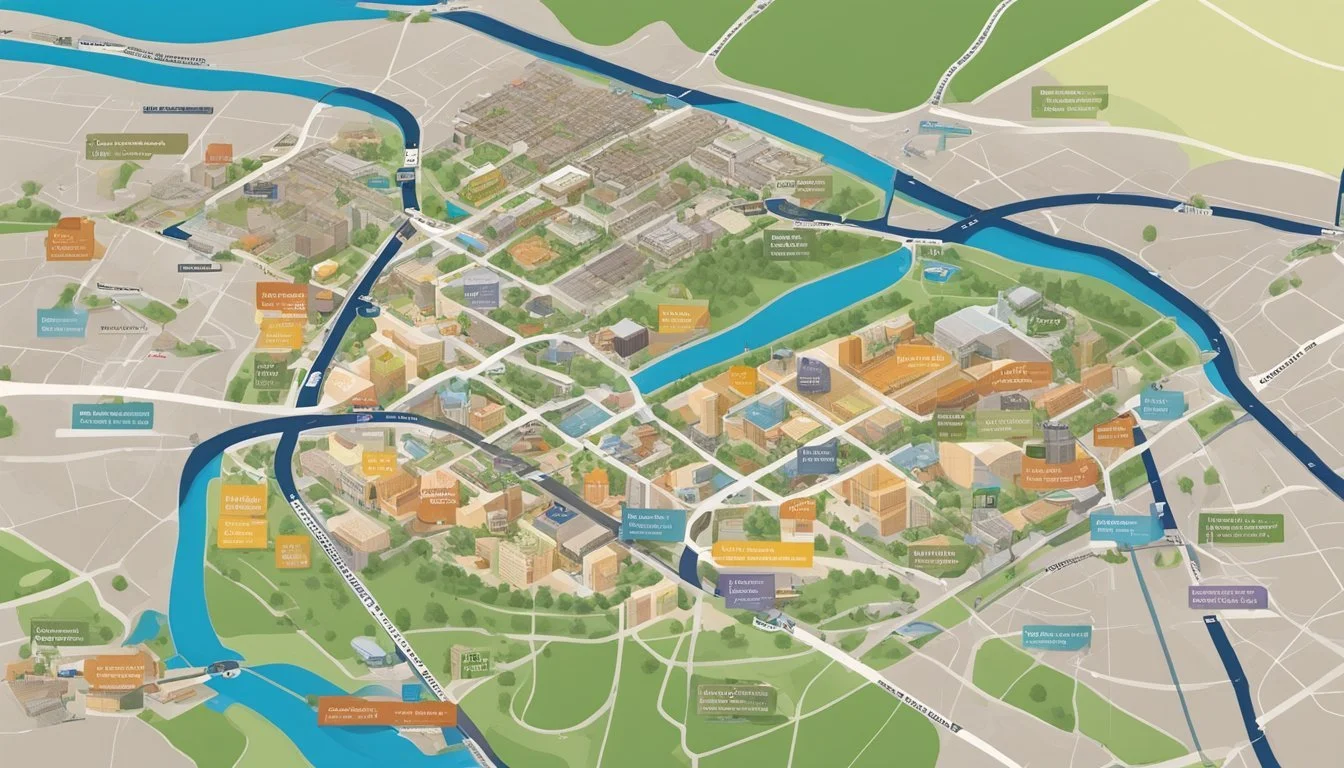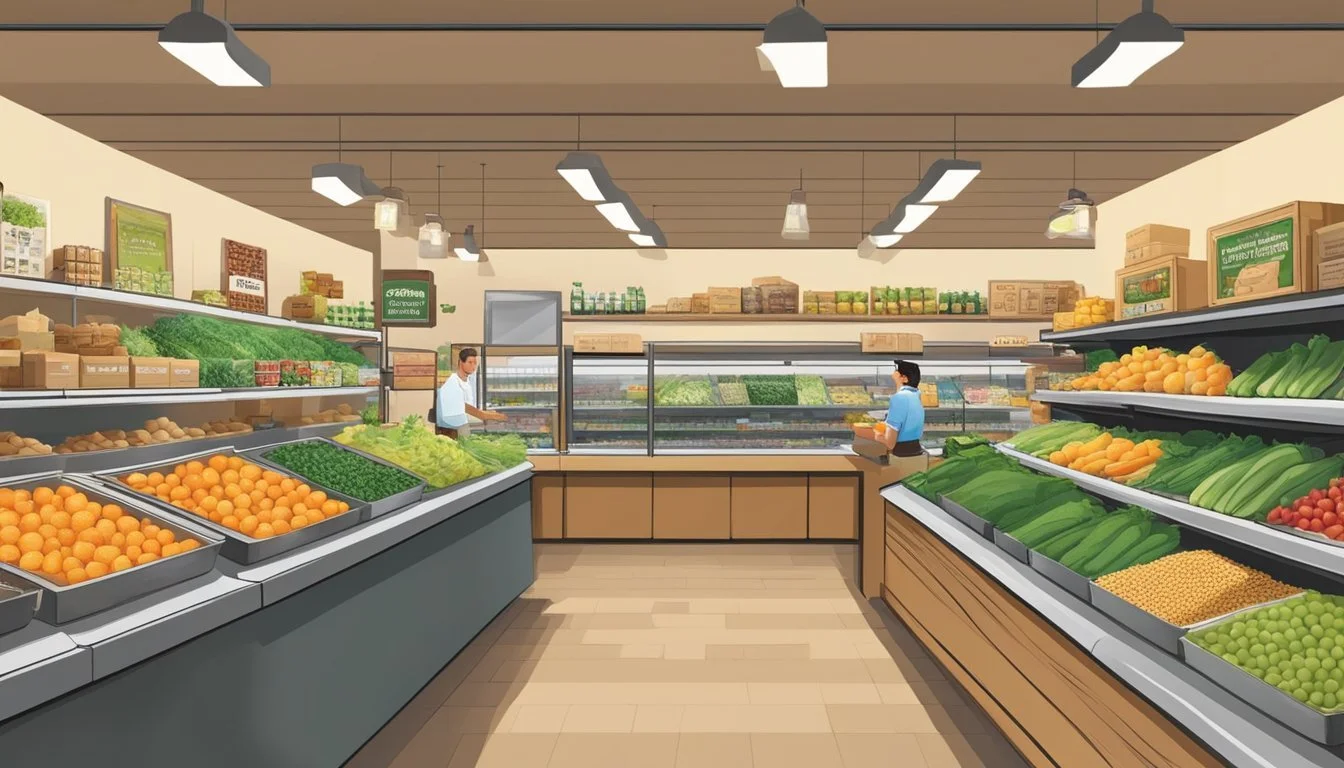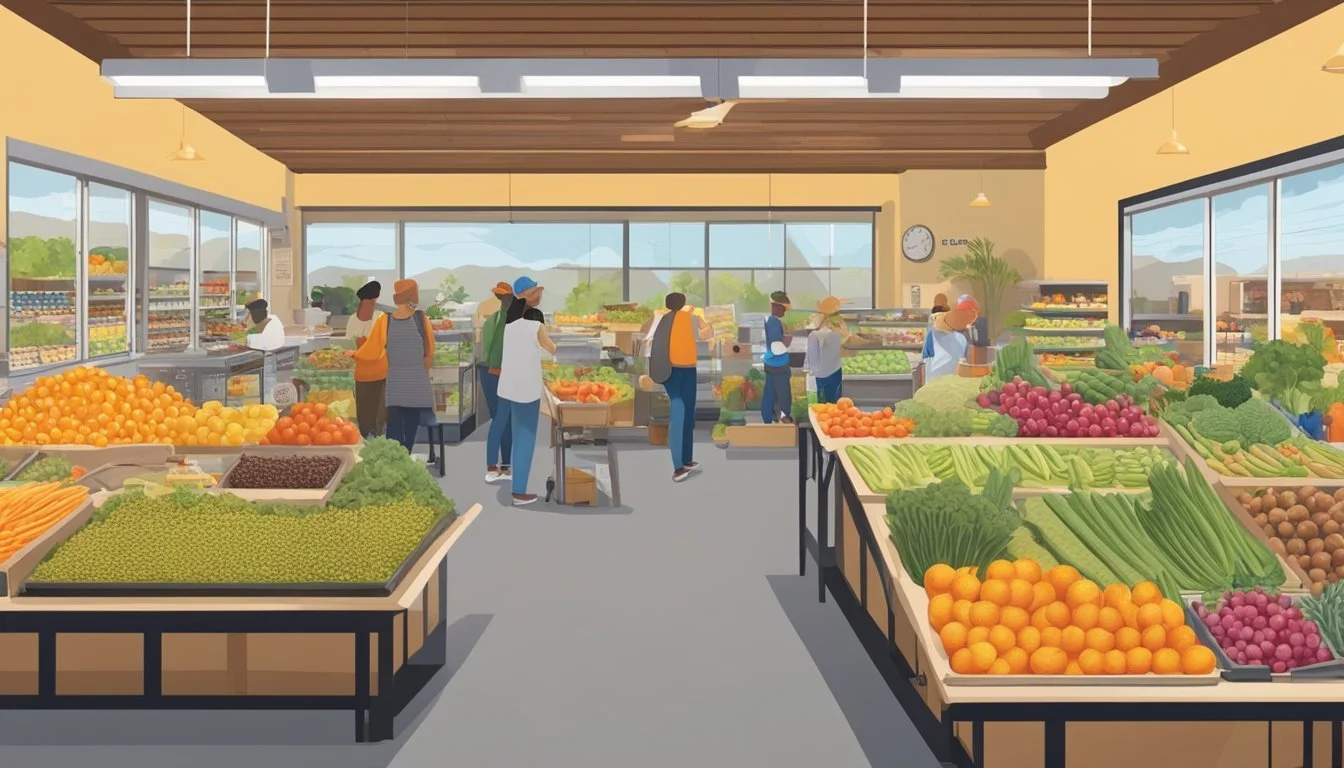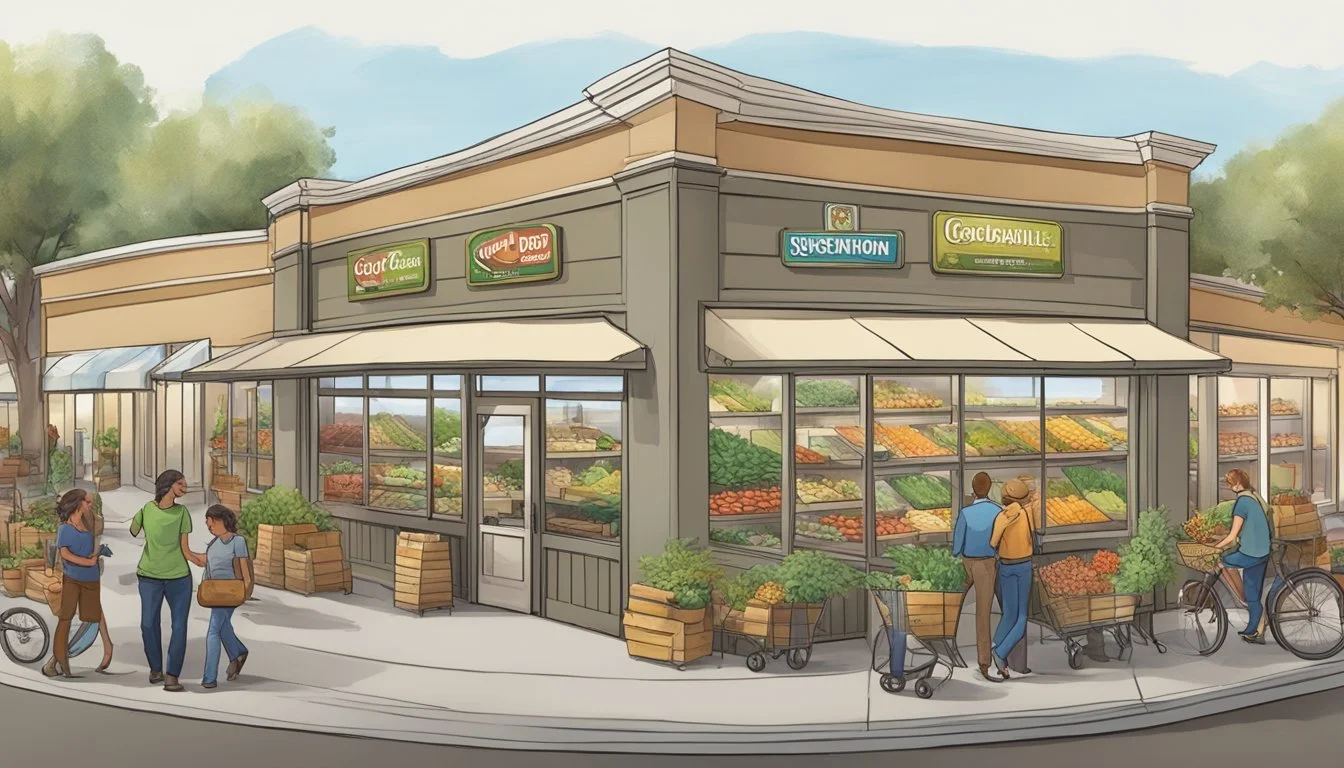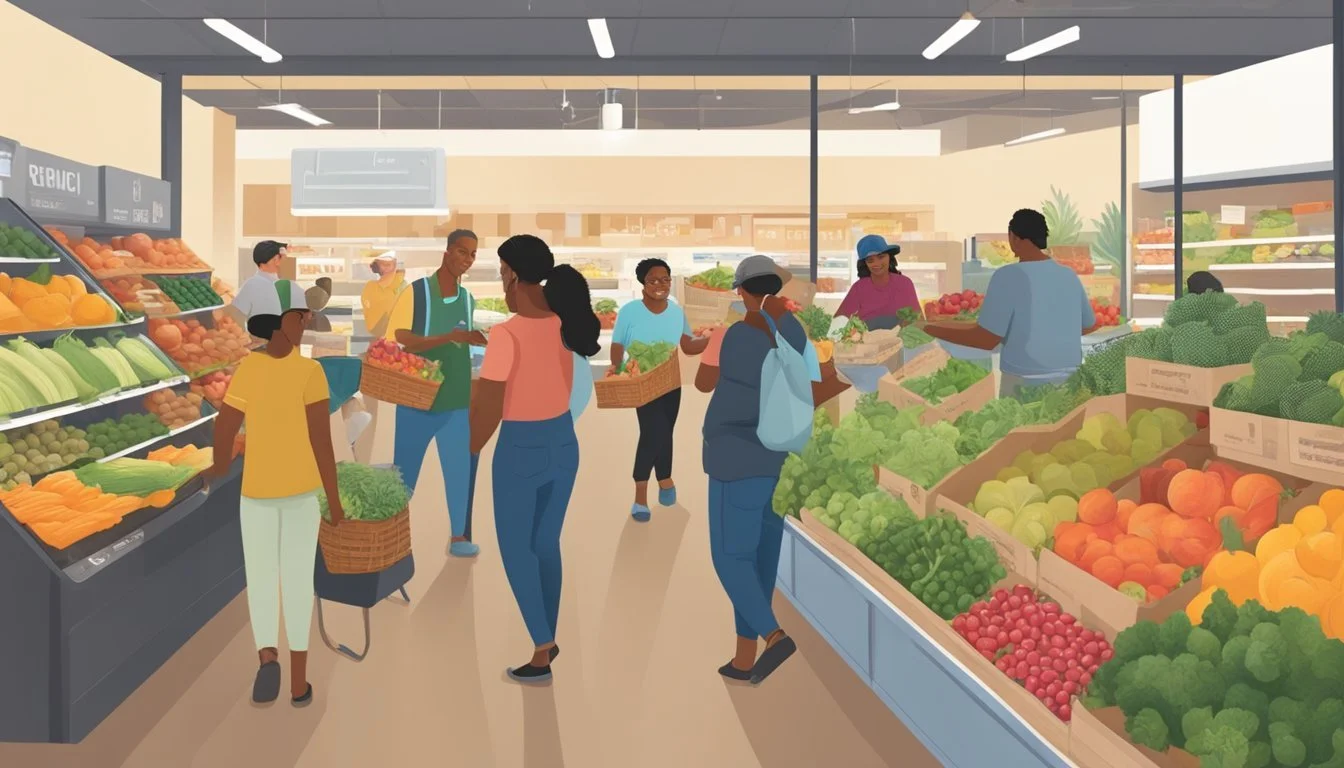Guide to Food Co-Ops in Peoria, AZ
Your Essential Shopping Resource
Food cooperatives in Peoria, AZ, offer a unique alternative to traditional grocery shopping, providing residents with a community-oriented experience and access to fresh, sustainably sourced products. With an emphasis on consumer education and support for local producers, these co-ops are not merely places to buy groceries but are hubs of collaboration, where members have a say in the business and benefit from shared resources.
In Peoria, various options cater to a range of preferences, from urban farms utilizing innovative vertical Aeroponic systems to traditional buying clubs that prioritize organic and locally-grown food. Bountiful Baskets Food Co-op, for instance, is one such place drawing attention for its cost-saving opportunities and a wide selection of food delivery services.
These local food co-ops are committed to offering high-quality items that promote health and well-being for their members and the community. By choosing to shop at a food co-op in Peoria, consumers not only receive good value but also contribute to a sustainable food system that reinforces local economies and fosters a tighter-knit community. Through this model, food co-ops in Peoria are setting a standard for ethical consumption and community-driven business.
What is a Food Co-Op?
In Peoria, AZ, a food co-op represents a community-centered grocery model rooted in shared ownership and democratic decision-making. These cooperatives function under guidelines that prioritize member needs and equitable practices over profits.
Defining Food Cooperatives
Food co-ops, or food cooperatives, are grocery establishments that are collectively owned and governed by their members, who are typically also the customers. These members buy shares in the co-op and, in doing so, acquire the right to vote on various decisions that impact the store's operations, such as product selection and sourcing.
Key Characteristics of Food Co-ops:
Member Ownership: Each member has an ownership stake.
Democratic Control: One member, one vote policy ensures equal decision-making rights.
Community-focused: Aligns product offerings with members' needs.
Core Principles of Co-Ops
The operation of food co-ops adheres to the seven cooperative principles which are fundamental to their identity and practice:
Voluntary and Open Membership
Democratic Member Control
Member Economic Participation
Autonomy and Independence
Education, Training, and Information
Cooperation among Cooperatives
Concern for Community
Food co-ops are defined not just by their structure but also by these guiding principles that promote autonomy and a strong sense of collective accountability.
Benefits of Joining a Co-Op
Joining a food co-op offers numerous advantages to its members:
Economic Benefits: Members may receive dividends or rebates based on the co-op’s profitability and their individual patronage.
Quality and Sustainability: Co-ops often prioritize high-quality, locally sourced, and sustainable products.
Educational Opportunities: They provide valuable education and information to members about food sources, health, and nutrition.
By becoming a member of a food co-op, individuals gain both a voice in a democratically controlled business and access to a tailored shopping experience that aligns with their personal values and community's needs.
Location and Accessibility
In Peoria, AZ, individuals interested in food co-ops have options that are both accessible and convenient, offering a range of locally-produced goods.
Finding Food Co-Ops in Peoria
Peoria hosts a variety of food co-ops, making it possible for residents to obtain fresh, local produce and goods. Some co-ops operate year-round, like True Garden Urban Farm, which uses the tower garden vertical Aeroponic system. This innovative approach to farming suggests that local residents can enjoy fresh produce throughout the year. The food co-ops in this area strive to provide accessibility to healthy food options and foster community spirit.
Transport and Parking Facilities
Proximity to public transportation and parking availability are factors that enhance the convenience of visiting food co-ops in Peoria. For example:
Bountiful Baskets Food Co-op: Offers ample parking space as indicated by reviews. It appears easily accessible for those driving.
Natural Grocers: Being a larger establishment, it typically provides a substantial parking area and may also be reachable via local bus routes.
Accessibility is key for these co-ops to serve their community effectively, and Peoria's infrastructure supports this by providing reliable transport options and ample parking for visitors.
Membership and Control
Food cooperatives in Peoria, AZ, hinge on their member base, with an emphasis on maintaining democratic member control. They offer community residents an opportunity to not only shop for local and sustainable products but also to have a say in the governance of the store.
Becoming a Member
To become a member of a Peoria food co-op, individuals generally must purchase a share or pay a membership fee. This fee is often affordable and structured to ensure inclusivity. The process is straightforward:
Submit an Application: Fill out the necessary paperwork that typically includes contact information and agreement to the co-op's principles.
Buy a Share: Purchase a share in the cooperative, which provides equity and proves membership.
Rights and Responsibilities
Members of a food co-op have various rights and responsibilities:
Rights: They have the right to vote in elections, usually one vote per member irrespective of the number of shares owned, ensuring equal representation.
Responsibilities: Members are expected to support the co-op through regular purchases and participation in community events or volunteer programs.
Democratic Decision-Making Process
Democratic member control is at the core of a food co-op's governance. Members participate in:
Elections: They elect a board of directors from among their ranks to oversee the co-op's operations.
Meetings: They have the right to attend meetings, voice opinions, and vote on important decisions affecting the co-op's future.
Transparency is key, with regular updates provided to the members on financial health and business strategies.
Product Offerings
Food co-ops in Peoria, Arizona offer a diverse range of grocery products that cater to different dietary needs and preferences, focusing heavily on organic and locally sourced items.
Range of Products
Co-ops typically carry a variety of groceries including pantry staples, snacks, and refrigerated goods to meet daily shopping needs. The selection extends to include specialty items such as beer and wellness products akin to those found in a pharmacy. These establishments pride themselves on providing a breadth of options that rival traditional grocery stores.
Organic and Locally Sourced Produce
When it comes to produce, Peoria food co-ops tend to emphasize the availability of fresh produce, with a special focus on organic fruits and vegetables. They often source these directly from local farms, ensuring that they offer high-quality, seasonal items that support local agriculture and reduce environmental impact.
Community Impact
Food co-ops in Peoria, AZ, contribute significantly to the region, from strengthening the local economy to fostering educational outreach. They operate on a model that puts community enhancement at the forefront.
Supporting Local Farmers
Food cooperatives in Peoria play a pivotal role in bolstering local agriculture by partnering with area farmers. These partnerships ensure that consumers have access to fresh, locally-sourced produce, which in turn provides a stable market for farmers to sell their products. This symbiotic relationship aids in sustaining the local agricultural economy and promotes the use of farming practices that are environmentally sustainable.
Local Produce: A variety of fruits and vegetables from farmers close to Peoria.
Stable Market: Reliable venues for farmers to sell their goods, boosting local business.
Education and Community Events
Educational initiatives and community events are integral to the mission of Peoria's food co-ops. They provide training and information sessions that aim to teach members and non-members alike about the importance of good nutrition, sustainable agriculture, and the benefits of local food systems. Workshops, cooking classes, and farm visits are just some examples of how these co-ops invest in the education of the community.
Workshops: Regularly scheduled sessions on nutrition and sustainable practices.
Cooking Classes: Hands-on learning experiences to promote healthy eating habits.
Donations and Community Support
Cooperatives are not just retail outlets; they are part of the social fabric in Peoria. Through donations and various forms of community support, they showcase a commitment to enriching the lives of residents. This includes contributing to food banks, supporting local non-profits, and participating in community-building activities that extend well beyond the sale of groceries.
Food Banks: Regular donations to support those in need.
Community Activities: Engagement in events that contribute to local unity and well-being.
Costs and Savings
When exploring food co-ops in Peoria, AZ, consumers often evaluate how joining a co-op compares to shopping at traditional grocery stores in terms of costs and potential savings. Additionally, membership in a co-op can offer unique economic benefits.
Price Comparison with Grocery Stores
Typically, food co-ops prioritize locally-sourced and organic products, which can lead to different pricing structures compared to conventional grocery stores. While certain items such as specialty organic produce might be priced higher at a co-op, shoppers often find that the food co-ops offer competitive pricing on a range of products due to their community-focused business model. Here is a simple comparison of item prices:
Item Food Co-op Price Grocery Store Price Organic Apples $2.00/lb $2.49/lb Cage-Free Eggs $3.50/dozen $4.00/dozen Local Honey $6.50/jar $7.00/jar
Members might also see seasonal fluctuations in pricing at co-ops, where prices may drop for produce in peak season due to local abundance.
Member Economic Benefits
Members of food co-ops often have the opportunity to participate economically in the cooperative. This typically involves receiving annual dividends based on the co-op's profitability and the member's spending over the year. For instance, if a co-op has a surplus, members may receive a percentage back as a patronage refund.
Member-Only Deals:
Discount days
Coupons
Special bulk pricing
Additionally, members invest in the co-op through an upfront membership fee, but this investment often entitles members to say in the governance of the co-op and in decisions about its future offerings and initiatives. This economic participation fosters a sense of ownership and commitment to the cooperative's success, further enhancing the value of shopping at a food co-op.
Members may also benefit from educational opportunities, such as nutrition and cooking classes, that can lead to more economical food choices and reduced household food waste, indirectly contributing to overall cost savings.
Co-Ops vs. Other Retailers
In Peoria, Arizona, food co-ops offer an alternative to traditional grocery stores, characterized by community ownership and collaboration rather than competition.
Differences from Traditional Grocery Stores
Ownership and Profits: Food co-ops are collectively owned by their members, with profits often returned to these members in the form of patronage dividends. Traditional grocery stores, on the other hand, are usually owned by private investors or shareholders, and profits are distributed amongst these stakeholders.
Product Selection: Co-ops frequently focus on supplying local and organic products, with an emphasis on sustainable practices. A notable statistic reveals that local products constitute an average of 21% of total sales in food co-ops as opposed to only 1.8% in national grocery chains.
Cooperation Amongst Co-Ops vs. Competition
Collaboration: Unlike the competitive nature inherent in most business models, food co-ops often operate under a principle of cooperation among cooperatives. They may share resources, information, and even marketing efforts to enhance the overall co-op movement.
Buying Clubs: Some food co-ops extend the cooperative model by incorporating buying clubs, which allows groups of individuals to make bulk purchases. This collaborative buying results in cost savings and access to products that might otherwise be less accessible through traditional retail outlets.
Food co-ops in Peoria are not just standalone entities but are part of a larger cooperative network that prioritizes mutual support over competition, offering a unique retail experience to the community.
Support and Resources
Food cooperatives in Peoria, AZ provide substantial support to members and the community, ensuring access to high-quality grocery items and education on food-related matters. They emphasize member control, product quality, and local community support.
FAQs and Help Centers
People often have questions about how food co-ops operate, membership details, and product sourcing. In Peoria, one can find answers through various channels:
City of Peoria Resource Center: They offer a community assistance division that can address common concerns about local co-ops.
Location: 8335 W. Jefferson St., Peoria, AZ 85345
Phone: (623) 773-7070
Hours: Monday - Friday, 8:00 a.m. - 5:00 p.m.
Online Platforms: Websites and social media pages often feature sections dedicated to FAQs, while platforms like Yelp provide reviews and feedback from community members.
Educational Workshops and Trainings
Education is a cornerstone of food co-ops, with many offering workshops and training sessions focused on healthy eating, sustainable practices, and food justice:
Workshop Locations: Venues such as True Garden Urban Farm in the vicinity conduct year-round educational initiatives using innovative farming technologies.
Training Themes: Sessions often cover topics from urban farming techniques to nutritional information, emphasizing the importance of supporting the local ecosystem.
Each resource is designed to empower individuals with knowledge and practical skills, reinforcing the cooperative principle of ongoing education.
Engagement and Communication
Effective engagement and communication are fundamental to the success of food co-ops in Peoria, AZ. They ensure members are informed, involved, and connected to their co-op's activities and governance.
Social Media Interactions
Food co-ops utilize social media platforms to foster a sense of community and keep members up-to-date on the latest developments. Platforms such as Facebook, Twitter, and Instagram allow food co-ops to share information quickly and interact with members in real-time. These interactions can range from updates about new products, events, and educational content that aligns with the cooperative principles of community and member education. Social media also serves as a tool for members to voice ideas and feedback.
Membership Meetings and Newsletters
Food co-ops in Peoria typically hold regular membership meetings where members can engage directly with the co-op's leadership. These meetings are indispensable for member control, allowing them to participate in key decisions and the election of the board of directors. Newsletters, either digital or printed, complement these meetings by providing detailed reports on co-op activities, financial health, and future plans. Regular newsletters ensure that all members, regardless of their ability to attend meetings, stay informed and feel included in the co-operative's operations.
Profiles and Reviews
In Peoria, Arizona, food co-ops enjoy a robust online presence and consistently positive member experiences. These components are critical in understanding the impact and quality of food co-ops within the community.
Online Presence and Reputation
Bountiful Baskets Food Co-op features prominently with mixed but generally positive reviews, indicating a satisfaction with savings for its members. On Yelp, it has a rating of 3.4 out of 5 stars from 94 reviews. Natural Grocers, another option, garners a higher rating of 4.0 out of 5 stars from 70 reviews on Yelp, suggesting strong approval from customers.
Yelp Ratings for Peoria Food Co-Ops:
Bountiful Baskets Food Co-op: 3.4 stars (94 reviews)
Natural Grocers: 4.0 stars (70 reviews)
Social media plays a significant role in amplifying their reach and engagement, allowing potential members to gauge the co-op's community value and product offerings prior to visiting or subscribing.
Personal Experiences from Members
Personal accounts from members often highlight the benefits of the co-ops. They typically discuss the fresh quality of produce and the cost savings compared to traditional grocery stores. Members express a sense of community and satisfaction with the food co-ops' commitment to offering healthy and locally-produced options. Instances of these experiences are frequently captured and shared through reviews on platforms like Yelp and within various social media discussions.
Key Member Insights:
Satisfaction from quality and savings
Emphasis on locally-sourced goods
The sense of community engagement
In keeping with the third-person perspective rule, it can be said that members often use reviews and social media to share their personal experiences, which helps to shape the reputation of food co-ops in the area.
Demographics and Inclusion
Food co-ops in Peoria, AZ, strive to create a welcoming environment where all members and consumers can find representation and respect. They focus on embracing diversity across various demographics, with special attention given to age diversity and gender equality.
Age Diversity in Membership
Food co-ops in Peoria recognize the importance of intergenerational participation. They encourage individuals from all age groups to join as members, providing opportunities for both young adults and seniors to contribute to the cooperative movement. This inclusion ensures that the co-ops cater to the needs and preferences of a wide consumer base, reflecting the age diversity of the Peoria community.
Gender Equality and Inclusion
These cooperatives are also committed to gender equality, ensuring that both men and women have equal opportunities to serve as board members, employees, and volunteers. Gender representation is considered a priority, with the co-ops aiming to create an inclusive space that promotes the equal involvement of genders in both consumer choices and organizational decisions.

